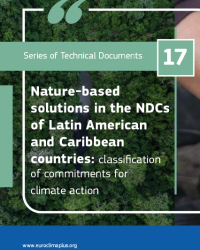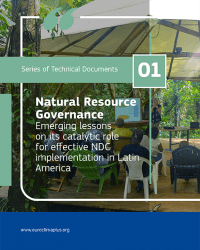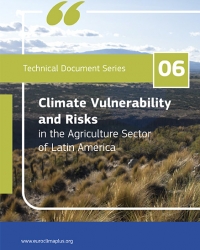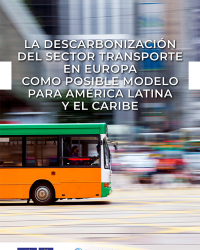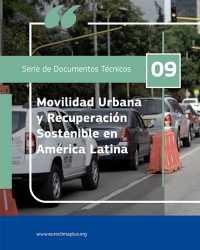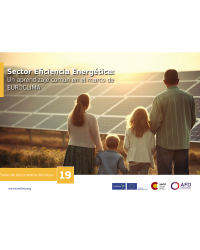Búsqueda por palabra
Búsqueda por categoría
Valuation of ecosystem services: A tool for decision-making in Nature-based Solutions projects
2066 Downloads
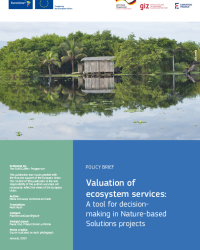 Nature-based Solutions (NbS) focus on the importance of ecosystems, and the services they provide people, to offer sustainable solutions to social, economic and environmental challenges. In order to make decisions with respect to the implementation and financing of NbS, it may be useful for decision-makers to have information in hand on the costs and benefits associated with the implementation of these projects, as well as the allocation of resources. This implies not only understanding the costs involved in the different phases of an NbS project, but also the social and economic benefits associated with the provision of ecosystem services. Describing the value of ecosystem services with precision can be a useful tool for decision-making in the framework of NbS projects.
Nature-based Solutions (NbS) focus on the importance of ecosystems, and the services they provide people, to offer sustainable solutions to social, economic and environmental challenges. In order to make decisions with respect to the implementation and financing of NbS, it may be useful for decision-makers to have information in hand on the costs and benefits associated with the implementation of these projects, as well as the allocation of resources. This implies not only understanding the costs involved in the different phases of an NbS project, but also the social and economic benefits associated with the provision of ecosystem services. Describing the value of ecosystem services with precision can be a useful tool for decision-making in the framework of NbS projects.
The valuation of ecosystem services is a process that makes it possible to determine and express the value that ecosystem services have for different beneficiaries, with the aim of including them in decision-making processes. There are different methodologies that can be used to guide the design and implementation of an ecosystem services valuation. This document discusses the general methodological steps of a valuation process, exemplified using a process of economic valuation of ecosystem services of the Sustainable Biological Corridor (SBC) in Guatemala and Honduras
Acceder la síntesis política en español aquí
| Category: | Serie Documentos técnicos |
| File Size: | 5.25 MB |
| Hits: | 14452 Hits |
| Download: | 2066 times |
| Título: | Valuation of ecosystem services: A tool for decision-making in Nature-based Solutions projects |
| Autor: | María Fernanda Contreras del Valle |
| Año: | 2023 |
| Autor institucional: | EUROCLIMA+, GIZ, EF |
| Formato: |

